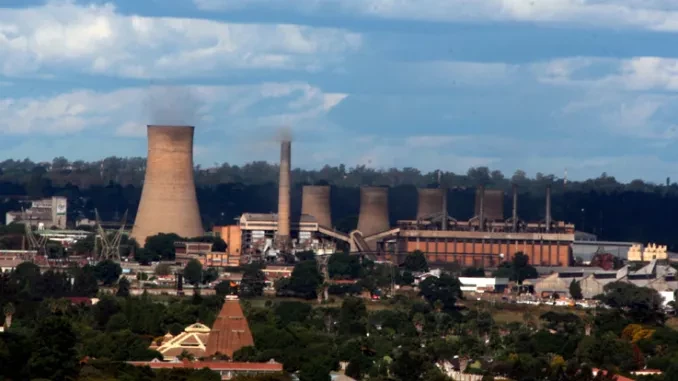
GOVERNMENT identified the rampant power shortages and lack of rail infrastructure as bottlenecks to developing its industrialisation policy, it has been revealed.
A report by the Confederation of Zimbabwe Industries released in June showed that the manufacturing sector’s contribution to the economy has been on a systematic decline since 1980, plunging to 9% in 2023 from a high of 23%.
The sharp decline has been attributed to currency and exchange rate volatilities, influx of cheap imports, lack of value-addition, rolling power cuts, lack of technological advancements, policy inconsistencies and rising production costs.
The setbacks have jolted government into coming up with measures to address some of these challenges through a comprehensive industrialisation policy.
“We need to focus on value-addition and beneficiation because until then, we still remain just producers of primary raw products, which does help the industrialisation thrust,” Finance, Economic Development and Investment Promotion permanent secretary George Guvamatanga said at a breakfast meeting organised by Zimbabwe Economic Society and Friedrich-Ebert Stiftung in Harare yesterday.
“So, I fully agree that we are already working as a government on an industrialisation policy. But, from the industrialisation policy, we also realise that there are other basic structures that we need to address like power, our rail.
“There is a memorandum of understanding and agreement that has been signed on how we are going to improve our rail network. So, something is also coming up.”
He said there was a Mutapa Investment Fund delegation out of the country looking for funding to support thr revitalisation of the National Railway of Zimbabwe’s (NRZ) railway system.
- ‘Zimbabwe can’t rush into mono currency’
- Chanakira speaks out on bleeding economy
- Mnangagwa renames Sovereign Wealth Fund of Zimbabwe
- Is Zim ready for Sovereign Wealth Fund?
Keep Reading
In 2018, the Southern Africa Railways Association revealed that Zimbabwe’s rail infrastructure cost was US$1,7 billion.
“I know there is a delegation at the moment, currently outside the country. As you know, NRZ is now under the sovereign wealth fund or the Mutapa Investment Fund and I can tell you that the CEO [chief executive officer] of Mutapa [John Mangudya] is out of the country at the moment to finalise something, a structure on the rail so that we actually have a workable rail system,” Guvamatanga said.
“And within those discussions, we are also looking at how we can quickly increase our power generation capacity, which at the moment is very much affected by any climatic shocks that we have, because we still get 30% of our power from hydro-based sources.
“Every time we have a drought, then you start hearing that the water capacity at Kariba is now at 12%, 10% and that indeed does affect our power generation capacity.”
Daily power cuts, lasting hours, have reducted production time by manufacturers, forcing them to spend money on generators or on solar power.
Guvamatanga said the government was looking at refurbishing the Hwange thermal power station to resolve the power challenges being experienced in the country.
“So, we are looking at other alternative power sources, looking at refurbishing Hwange so that we can increase the power generation capacity. I think we can pick up this structural conversation. There is work already going into it,” he said.
“We agree with you on that, that the only way forward for Zimbabwe is a complete structural adjustment on how we industrialise and convert primary products, which we have in abundance, into usable and sellable high-value commodities that we can sell regionally and internationally. So, we are very much fully agreed on that.”











